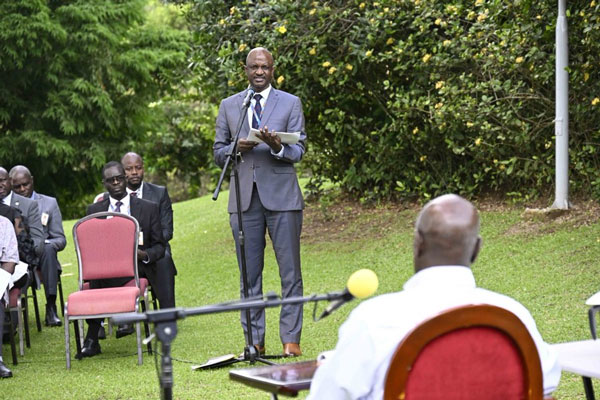Recent discussions in the media have centered around traders in downtown Kampala protesting the implementation of the Uganda Revenue Authority’s (URA) Electronic Fiscal Receipting and Invoicing System (EFRIS) and alleging double taxation regarding Value Added Tax (VAT).
Traders argue that they already pay VAT on goods during purchase from manufacturers or upon importation, yet they are expected to remit an additional 18% to the tax authority every month.
During an appearance on the Capital Gang program last Saturday, URA’s Commissioner General John Musinguzi addressed these claims, clarifying that VAT is an indirect tax levied at each stage of value addition.
Musinguzi emphasized, “What businesses remit to the government is the difference between VAT output collected at the point of sale and VAT input at the point of purchase. VAT falls under the category of indirect taxes.”
This perspective was supported by Kira Municipality Member of Parliament Hon. Ibrahim Ssemujju Nganda, who explained that the ultimate burden of VAT falls on final consumers, not traders. He suggested that traders’ resistance to EFRIS might stem from concerns about losing customers due to potential price increases.
“Traders don’t pay VAT; they collect it. The real burden falls on us, the final consumers. Their main worry is that VAT might drive prices up, causing customers to go elsewhere,” Hon. Nganda stated.
Regarding EFRIS, Musinguzi described it as a system designed to streamline VAT collection with various benefits for users, including enhanced record-keeping and sales monitoring.
He urged traders to embrace the technology, assuring them of a willingness to address any operational challenges associated with its implementation.
Hon. Abdul Katuntu, the Bugweri district MP, echoed similar sentiments, emphasizing that technological progress is inevitable, and Uganda cannot regress.
“EFRIS is a collection tool, not a tax. It’s here to stay. The conversation URA should be having with traders is how to address issues that arise from its implementation,” noted Hon. Katuntu.
The discussion also featured other participants, including Thadeus Musoke Nagenda, chairman of the Kampala City Traders Association, veteran politician Lydia Wanyoto, and government spokesperson Ofwono Opondo.




















